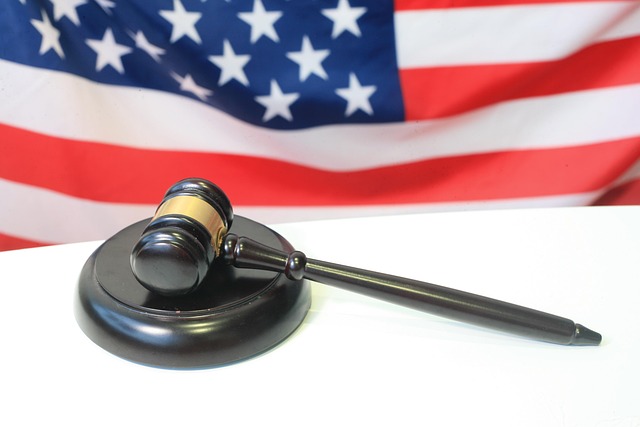The Piney Ridge Center in South Carolina faces numerous lawsuits alleging severe abuse against residents with mental health and developmental disabilities, sparking public outrage and scrutiny. These legal actions highlight the urgent need for accountability and reform in mental healthcare. The ongoing lawsuit cases serve as a powerful tool for survivors to seek justice, break silence, ensure transparency, and drive systemic change. By exposing historical abuse and winning compensation, these lawsuits foster healing for victims and prevent future instances, making Piney Ridge Center's legacy a cautionary tale for institutional accountability.
“Uncovering Justice for Piney Ridge: Holding Institutions Accountable through Lawsuits explores the powerful tool of legal action in addressing past abuses at the Piney Ridge Center. This article delves into the complex allegations, examining how lawsuits can drive accountability and offer justice to victims. By analyzing the legal framework and presenting case studies, we highlight the potential for meaningful healing and reform within institutions like Piney Ridge. With a focus on Piney Ridge Center lawsuits, this piece aims to shed light on the critical journey towards transparency and reconciliation.”
- Understanding the Piney Ridge Center and the Allegations of Abuse
- The Legal Framework: How Lawsuits Can Bring Accountability
- Case Studies and Potential Impact on Victims' Justice and Healing
Understanding the Piney Ridge Center and the Allegations of Abuse

Piney Ridge Center, located in South Carolina, is a facility that has been at the center of a contentious debate due to allegations of abuse against its residents. The center, which houses individuals with mental health issues and developmental disabilities, has faced multiple lawsuits in recent years, highlighting concerns about inadequate care and mistreatment. These lawsuits have brought to light disturbing claims of physical, emotional, and sexual abuse, as well as neglect, by staff members and other individuals within the facility.
The Piney Ridge Center lawsuit cases have sparked widespread public interest and scrutiny, prompting discussions on the importance of accountability and reform in the mental health care system. The allegations include harsh disciplinary measures, inappropriate handling of patients, and a general failure to provide the level of care necessary for the well-being of those entrusted to their custody. These revelations underscore the urgent need for transparency and stringent oversight mechanisms within such institutions to ensure the safety and dignity of their residents.
The Legal Framework: How Lawsuits Can Bring Accountability

The Piney Ridge Center lawsuit has emerged as a powerful tool for seeking accountability and justice in the face of historical abuse. In this case, legal action serves as a means to hold responsible those who may have contributed to or turned a blind eye towards the mistreatment occurring within the facility. By filing a lawsuit, survivors can break the silence surrounding their experiences and ensure that the truth comes to light. This legal framework provides an avenue for compensation, recognition of harm, and changes in policies or practices that could prevent similar instances from happening again.
Through the Piney Ridge Center lawsuit, survivors have the opportunity to seek redress for their suffering. This can include monetary damages for physical and emotional injuries, as well as punitive measures designed to punish negligent or intentionally harmful actors. The process also encourages institutions and staff members to confront their roles in past abuses, fostering a culture of transparency and accountability. As such, lawsuits not only offer individual healing but also contribute to systemic change, ensuring that the legacy of Piney Ridge serves as a cautionary tale rather than a forgotten chapter.
Case Studies and Potential Impact on Victims' Justice and Healing

Case studies, like the recent Piney Ridge Center lawsuit, shed light on the impact of institutional abuse and its subsequent legal consequences. These cases offer a glimpse into how individuals who have suffered can seek justice and healing through the legal system. The outcome of such lawsuits can have far-reaching effects, not only holding institutions accountable for their actions but also providing closure and validation to victims.
For victims of Piney Ridge Center or similar facilities, winning a lawsuit can mean more than just monetary compensation; it’s a recognition of their pain and suffering, a step towards justice, and potentially an avenue for institutional change. This process allows for the exposure of systemic issues, encouraging better practices and policies in care facilities to prevent future abuse.
The pursuit of justice for victims of abuse at the Piney Ridge Center through lawsuits is a significant step towards accountability. By leveraging the legal framework, individuals can bring light to hidden truths and seek redress. Case studies demonstrate the potential for these suits to not only compensate victims but also foster a culture of transparency and prevention, contributing to the healing process and ensuring such atrocities are not repeated. The Piney Ridge Center lawsuits serve as a powerful tool in the quest for justice and accountability.
